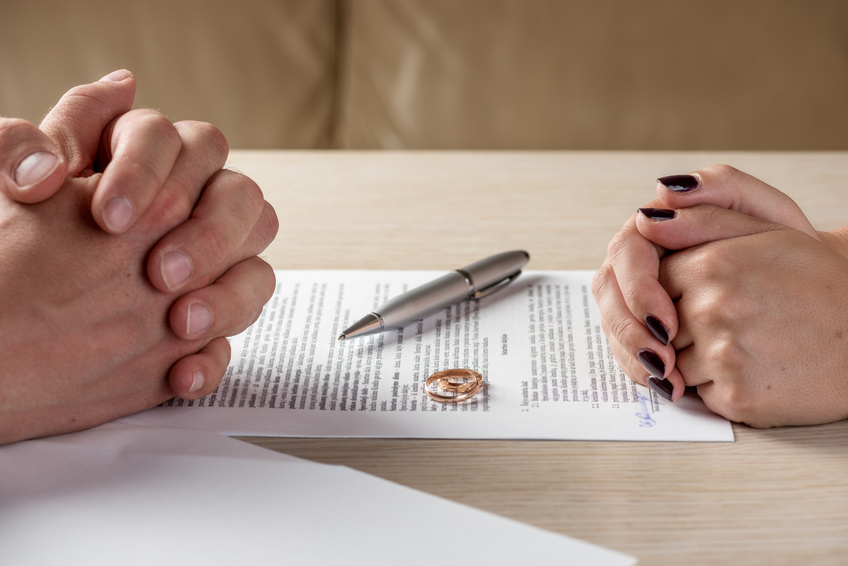The Costly Consequences of Divorce Dating
When going through a divorce, many people seek solace in a new relationship. However, if you’re considering dating during a divorce, it’s vital to be aware of the potential pitfalls.
The question “Can I go out on a date?” is often on the minds of soon-to-be divorcees. The simple answer, “Not until your divorce is final,” should be the rule. But, as is often the case, things are rarely that straightforward.
Divorcing individuals often feel lonely and stressed, longing to meet new people, regain their sense of attractiveness, and simply have fun. As a result, many clients start thinking that going on one date won’t do any harm.
However, when it comes to dating during a divorce, there are more things to avoid than things to indulge in. To better understand the complexities of this situation, let’s first define what “dating” entails. Legally, “dating” refers to one-on-one social contact with another person, regardless of whether it is platonic, romantic, or sexual. Nevertheless, from a practical standpoint, it is the romantic or sexual relationships that draw attention and have the potential to complicate your divorce case.
Divorce attorneys strongly advise against dating while the divorce is pending. Doing so can significantly increase the cost and pressure of the divorce trial. It is important not to start a new relationship while still legally married. However, judges rarely punish individuals who begin dating, sexually or otherwise, after they have physically and permanently separated from their spouse.
Even if everything seems fine, engaging in dating during a divorce can introduce unnecessary stress, aggravation, and even make the divorce process more complicated and expensive.
An Affair or a New Relationship?

The presence of a new partner during a divorce, especially when introduced to the child or the ex-partner, can ignite anger and suspicions, giving rise to accusations of starting an “affair” before the divorce. As a result, the ex-spouse may seek revenge by initiating legal battles against both you and your new partner. Introducing a new partner, whether justified or not, can escalate stress and conflict, delay the divorce proceedings, and increase legal fees if you have lawyers involved in your case.
Depending on the laws in your state and the specific circumstances surrounding your divorce, the opposing lawyer may have the right to depose your new partner. Your spouse’s legal representative might even summon your new partner to provide testimony during the trial. Needless to say, this can be an extremely unpleasant experience for everyone involved.
Through depositions, lawyers aim to uncover various details, such as when the relationship began, whether it is sexual in nature, if any marital assets were transferred to the new partner (e.g., through gifts), how much money was spent on dating this person, and whether any statements made in court by either party could be used against them.
Even if everything seems fine, dating while the divorce is still pending can add unnecessary aggravation, pressure, and potentially make the divorce process more complex and expensive. However, for those who simply cannot wait, here are some guidelines to consider when dating while going through a divorce:
The Dos and Don’ts of Dating During a Divorce

-
Don’t even think about dating until you have physically separated from your spouse. The judge (or your spouse) may attribute the failure of the marriage to the new partner, which could result in a judge awarding more of the marital property to your spouse, depending on the laws in your state.
-
Date with extreme caution once you are officially separated. Be especially mindful when around your children. Avoid doing anything in front of them that you would be embarrassed to discuss in front of a judge. Refrain from introducing your children to your new partner, as this may cause irritation for your ex-spouse and further distress your children. It is not advisable to expose young children to new partners, as this decision could jeopardize your future custodial rights. Wait until after the divorce is finalized to start dating, and only introduce your children to a new partner after you have been dating for at least 6 months.
-
Avoid getting pregnant or impregnating anyone until your divorce is officially finalized. Pregnancy can delay the proceedings until the baby is born, allowing the court to determine paternity, custody, and support requirements.
-
Follow these dating do’s and don’ts throughout your divorce:
- Do make friends in groups and avoid exclusively pairing off with anyone.
- Do attend events alone and socialize with others. If you meet someone you’re interested in, be upfront about your situation right away.
- Do exchange contact information, but minimize one-on-one contact until you have been separated for at least a week.
- Do consider joining a divorce support group to help cope with feelings of sadness and isolation.
Can the Court Restrict Dating?

While a divorce is pending, most states allow judges to issue temporary orders that address various aspects such as custody, alimony, child support, and restraining orders to prevent the dissipation of marital funds. Both spouses are obligated to comply with these temporary orders; otherwise, they risk being held in contempt of court, which can result in fines, legal fees, and even jail time.
Although judges are unlikely to issue an absolute prohibition on dating during a divorce, this doesn’t mean that the court won’t take action against a spouse who uses marital funds to date, exposes the children to unsavory individuals, or engages in behavior that negatively affects the family and finances during the divorce.
Furthermore, if your spouse accuses you of adultery while you’re dating during the divorce, the court will consider your relationship when deciding on matters such as alimony and property division, depending on the laws in your state.
Dating After Divorce: Navigating New Relationships

Once the divorce is finalized, both spouses are free to enter new relationships and even remarry. If you have children with your ex-spouse, your divorce settlement may include provisions that prohibit introducing new partners to your children for a certain period of time or restrict dating activities involving your children.
To avoid leaving the fate of your future dating life solely in the hands of a judge, you and your ex-spouse can work together to create a marital settlement agreement that addresses future relationships and the introduction of new partners to your children in a way that both of you are comfortable with. As long as both spouses agree, the agreement can include the following requirements before it is submitted to the judge:
- Neither spouse will have a dating partner present when the children are around.
- Parents should wait for a specific period of time before introducing children to a new partner.
These are the key considerations when it comes to dating during a divorce. We hope this article provides you with valuable insights.



